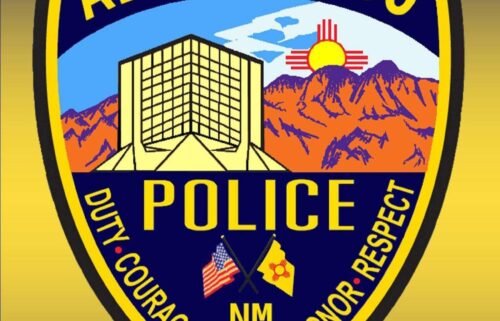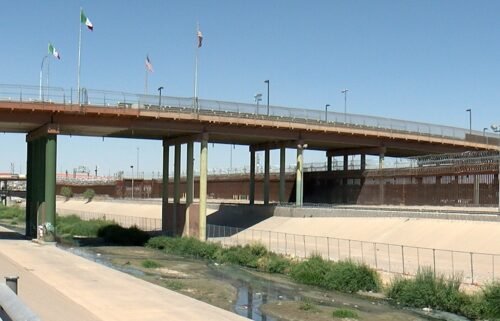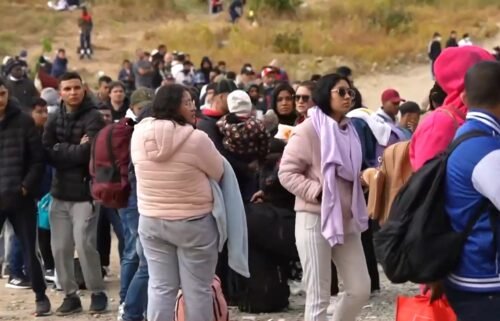Missoula pioneers: First three refugee graduates reflect on high school
Click here for updates on this story
MISSOULA, MT (Missoulian) — Janvier Munyazikwiye graduated high school Thursday in a stadium called Washington-Grizzly.
It’s on the university campus, he was told Wednesday, when he looked puzzled about where the venue was.
Janvier (say ‘zhawn-vee-AY’) is a Congolese refugee from Uganda and one of three very different people who help mark a milestone this week as Missoula’s first high school graduates in its 21st century resettlement effort.
He and his friend Hagos Gebremedhin of Eritrea are receiving diplomas from Willard Alternative High School after journeys through education systems continents apart.
Rachelle Bushiri, Congolese from Burundi, will graduate from Sentinel High at noon Friday, the second of three commencement exercises for the Class of 2020 that day at Washington-Griz.
“I’m so proud and I’m so nervous because I can’t believe I’m the first refugee student to graduate here in Missoula,” she said. “That’s kind of crazy, you know?”
It’s a big deal, Mary Poole said. A co-founder of Soft Landing Missoula that began working with refugee arrivals and the International Rescue Committee, Poole said Soft Landing has worked with all three graduates through its after-school program and lately through virtual tutoring because of COVID-19.
“Moving to Missoula and attending American high school is a huge transition, including taking challenging classes in a new language,” she said. “It has been such a joy to see these capable, smart, eager and hardworking kids achieve this huge milestone.”
Janvier took Thursday afternoon off from one of two full-time jobs and found his way to the UM stadium for Willard’s graduation. He’ll also “walk” with other Willard students at Hellgate’s exercises on Friday at 9 a.m.
Hagos (HAY-gose) is the more reserved of the three graduates and said Wednesday he didn’t think he’d be going to either ceremony. Both young men began their Missoula schooling at Hellgate before transferring to Willard for their senior years as nontraditional students. Hagos turned 20 and Janvier 19 earlier this year. Unlike Rachelle, who brought her transcript from a French-speaking school in Burundi with her to Sentinel, Janvier and Hagos started from scratch. The tri-mester structure at Willard and an age waiver from the district school board allowed them to catch up to the 2020 graduating class while fulfilling state accreditation requirements.
“All three definitely are worthy, all had their own paths and all three have worked extremely hard to get here,” said Aria Peters, English Language Learning instructor for the high schools in Missoula County Public School district.
Rachelle turned 19 in April. She’s the youngest of five children in the Bushiri family that arrived in Missoula in June 2018 from a city dwelling in Burundi, on the eastern edge of their native Democratic Republic of the Congo, or DRC.
She knew little English when she entered Sentinel that fall. She played tennis for the Spartans the following spring and loved it. But even before the COVID-19 crisis nixed spring sports this year, and despite having the option to go another semester, she made up her mind to forego tennis and finish school.
“She had to load up this last semester and did some online classes,” Peters said. “I definitely had my doubts, like, “Really, Rachelle? That’s a lot of work.’ But she really followed through.”
Hagos is part of a large Eritrean family that includes an infant brother born in Missoula last summer. Another brother, Rodas, started school in Missoula as an eighth grader and will be a junior at Hellgate in the fall. A good student, Rodas is on track to become the first refugee student to complete four years of high school in Missoula since the 1980s.
Their parents, Desbele and Adhanet, packed up the kids and fled to a refugee camp in nearby Ethiopia when Hagos was 15 to keep him from being pressed into indefinite military service as part of Eritrea’s educational system.
They were vetted and approved to resettle in America, arriving in Missoula in the heart of winter in early 2018. His native language of Tigrinya has a totally different alphabet system, Peters said, even different from Arabic.
“Everything was hard for me. I didn’t know anything when I got here,” Hagos said.
He’s still not as comfortable in his English, but of the three refugee grads, Hagos has come the farthest, Peters said.
Rochelle, whose family fled the Democratic Republic of the Congo (DRC) when she was 1, grew up in Burundi with both the Swahili and French languages. Janvier, also native Congolese, speaks Kinyarwanda, an official language of Rwanda and common in the eastern DRC and adjacent parts of southern Uganda.
He picked up English quickly in Missoula, earning a promotion from basic English As A Second Language class to a higher level. School instructors and Soft Landing volunteers were beside him all the way, he said.
“It’s a lot of work, man,” he said. “The language is the big one.”
Having arrived in America earlier, Hagos, the Eritrean, showed Janvier the ropes around Hellgate. They played soccer and pickup basketball together and help each other struggle through the vagaries of the English language.
“They’re buds,” said Greta Bates, Soft Landing Missoula’s family resource coordinator. “They’re kind of like polar opposites, but they get along. They both got their (driver’s) licenses and bought their own cars.”
Both also lost their jobs when Masala Indian Restaurant in downtown Missoula closed its doors in March at the outset of Montana’s COVID-19 shutdown. It was the main source of income and some school credits for each.
“How thankful I was to get hired at Rosauers” on the other end of town, said Janvier, who is dedicated to supporting his mother and sister.
When Masala reopened in May, he decided to keep both jobs, even while completing his online studies at Willard. On a typical day Janvier said he works from 5 a.m. to 2:30 p.m. at Rosauers and 3 p.m. to 10 p.m. at Masala.
“I would spend half of my night sleeping, do my (school) work, make sure everything’s turned in,” he said. “It was not on time but I tried my best to do it, and it worked out. I also spent some of my days off with a tutor to get things caught up.”
Now that he’s finished with school he’d like to add a newspaper delivery route.
Hagos struggled with online schooling and said after the first three weeks he spent most of his time “just chilling in my house with my brothers.”
But he came through in crunch time. He achieved most of the final credits he needed to graduate in the final two weeks.
When school was up and running, Hagos said, “I like everything. It was good. The only problem was my language but my teachers, they helped me a lot.”
Rachelle echoed that sentiment from her experiences at Sentinel, citing the work of Peters and others who helped her along. She leaves school with some friends, “but not too many,” she said. “Maybe I didn’t speak English as well. That kind of thing.”
Her sister Esther enrolled in Missoula College last semester, and college is on Rachelle’s mind, too, with a goal of becoming a nurse. But not right now.
“I’m looking to work,” she said.
“I think the thing that keeps me going in school (is) I know who I am, and I know why I went to high school because I guess if you don’t study here in America you can’t become anyone in your life. I know why I went to school, because that will help me in my future.”
Hagos can see himself as a carpenter some day, but the future isn’t a concept either he and Janvier embrace. Janvier said he prefers instead to think of “the coming years.”
“In general I don’t think the future exists,” he said bluntly. “Everyone talks about the future, the future, and later they die, so that’s not a future. There’s no future for me.
“Since I was little, people kept saying, ‘Maybe in the future be somebody, be somebody.’ But I keep growing up and do the same thing, nothing changed, so I think there’s no future.”
That’s not as dire as it sounds, said Molly Cottrell, program director at Soft Landing.
“My experience with both of them is that they are focused on the immediate future — ‘How can I make money and support my family this summer?’” Cottrell said. “I’m not sure either one of them has even been encouraged to hope and dream about a far-off future. It’s a pretty foreign concept for them.”
For now, the pioneer graduates have made their marks on Missoula. Poole said each will receive a professional cap-and-gown session from volunteer local photographers, courtesy of Soft Landing.
“These kids are so loved,” Poole said. “They shine so bright in the lives of many here in our community. From their teachers and tutors with Missoula County Public Schools, to volunteer tutors with Soft Landing Missoula, to their church communities and new school friends, we have all loved getting to know them and seeing them thrive.”
Please note: This content carries a strict local market embargo. If you share the same market as the contributor of this article, you may not use it on any platform.




